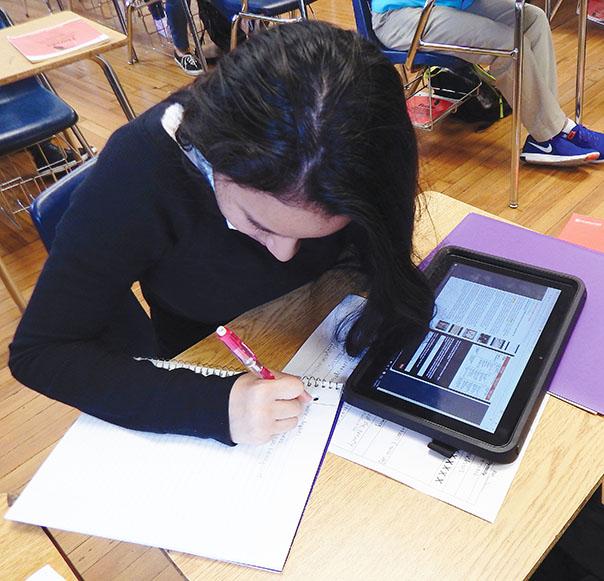Paper vs. Virtual Books
Paper books or e-books, which do you prefer? Some students and teachers prefer the natural over the modern and vice versa. Is one really more beneficial than the other?
Paper-book Lovers
Some students prefer reading the old-fashioned way. Senior Enrique Rivero said, “Paper books won’t malfunction. You can always physically go back and read.”
Junior Elizabeth Astacio says that paper books are easier for taking notes because she can highlight and underline.
“I learn more with a hard-cover book because I’m actually able to see the full text without zooming,” said Brenda Sanchez, a senior.
Junior Armando Torres prefers “Bark over battery,” saying that a paper book feels more natural to him.
Rodney Regalado, a junior, believes that having the physical copy helps you focus more on the book because you’re able to zone everything else out more easily.
E-book Lovers
Other students prefer to go high-tech in their reading. Senior Guillermo Larosa prefers e-books because everything we use to learn is electronic, so it’s easier and more comfortable.
“I can interact more with e-books,” said sophomore Will Mineros, “and no trees are being killed for paper.” He also prefers e-books because during tests, if he makes a mistake on the e-book, he is able to change the answer without any trace. On the other hand, on paper if the eraser doesn’t completely erase the answer, it could be counted wrong.
Assistant principal Ms. Leal said that all 9th and 10th grade students are using e-books currently, through World History and English. “Little by little the district is making all classes have e-books,” she said, “because it’s getting the students prepared college with the use of the electronic tablets.”
Teacher Opinions
Teachers at Sting Town have their own opinions about e-books. English 2 teacher Ms. Zamora likes them because she believes they are easier, and since they are online, everyone has either a tablet or a phone to be able to interact with, so there’s no excuses. “I remember having e-books in college,” she said, “and I had to do a Shakespeare assignment, but I was also going on vacation and e-books made it so much easier because I was able to listen and do my assignment fast, while on the road.” She believes the only downfall about e-books is the internet. If you don’t have access to it, then you would need a plan B.
On the contrary, Ms. Delgado, a social studies and World History teacher, doesn’t think that e-books and other electronics make it easier to teach. “There are too many technical difficulties that could happen,” she said, such as Wi-Fi connection. She does believe that tablets are beneficial, however, because she is able to keep track of what her students are doing.
Cons about E-books
Although there are many pros to e-books, there are also disadvantages. Armando Torres said, “Sometimes it’s not just the brightness that gets you tired; it’s simply looking at the device.”
Cons About Paper-based Books
On the other hand, some Stings don’t like paper-based books. Sophomore Angel Navas said that paper books are more expensive than buying them online.
Lauren Velez, a sophomore, said that paper books also weigh much more than e-books.
Carlos Cordova points out, “For paper books, too much paper is being wasted.”



